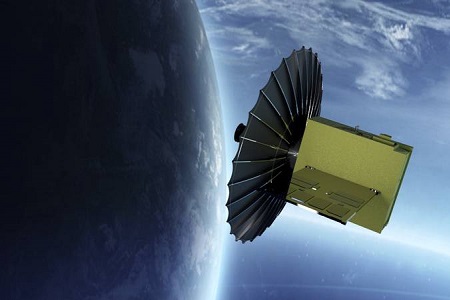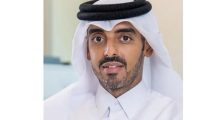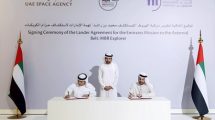 In a momentous development for the UAE’s space sector, Sheikh Khaled bin Mohamed bin Zayed Al Nahyan, Crown Prince of Abu Dhabi and Chairman of Abu Dhabi Executive Council, and Sheikh Hamdan bin Mohammed bin Rashid Al Maktoum, Crown Prince of Dubai and Chairman of Dubai Executive Council, have launched the execution phase of the Sirb programme. This initiative signals a significant leap in the nation’s space capabilities, driven by the UAE’s industrial sector, according to a report by WAM.
In a momentous development for the UAE’s space sector, Sheikh Khaled bin Mohamed bin Zayed Al Nahyan, Crown Prince of Abu Dhabi and Chairman of Abu Dhabi Executive Council, and Sheikh Hamdan bin Mohammed bin Rashid Al Maktoum, Crown Prince of Dubai and Chairman of Dubai Executive Council, have launched the execution phase of the Sirb programme. This initiative signals a significant leap in the nation’s space capabilities, driven by the UAE’s industrial sector, according to a report by WAM.
The distinguished leaders were presented with a comprehensive overview of the Sirb programme’s objectives and the cutting-edge technology earmarked for development in the satellite initiative. The project’s milestones and the mechanisms for developing and operating the satellites were detailed by a national industrial consortium under the supervision of the UAE Space Agency.
The first satellite, scheduled for launch in 2026, is poised to complement the UAE’s investments in remote sensing technologies across diverse sectors, utilising radar satellites capable of capturing images day or night, regardless of atmospheric conditions. This project signifies the establishment of a constellation featuring three synthetic aperture radar (SAR) satellites, utilising state-of-the-art imaging technology to achieve high-precision results in all weather conditions.
The Sirb programme aims to address climate change challenges, foster environmental sustainability, contribute to urban development, integrate disaster management efforts, and support food security challenges. Leveraging qualified national talent and UAE companies, the project also seeks to cultivate global partnerships, extending from the Space Economic Zones initiative, with the goal of solidifying the UAE’s position as a global hub for talent, investment, and innovation.
Sheikh Khaled said: “We will enhance local expertise in the field of space to support our ambitious vision for the UAE to become a global hub for manufacturing and operating satellites. We are focusing on creating opportunities for national companies and the private sector to be part of this significant journey, and to support the development of the space sector’s infrastructure.”
Sheikh Hamdan added: “Sirb marks a strategic turning point in the UAE space sector, transitioning from a governmental and academic sector to an integrated governmental, private and academic sector that supports the development of microtechnology and progresses the space sector’s industrial development. Empowering start-ups, SMEs and entrepreneurs tops our priority list, as they are the main drivers for economic growth.”
Sarah Al Amiri, Minister of State for Public Education and Advanced Technology and Chairperson of UAE Space Agency, thanked Sheikh Khaled and Sheikh Hamdan for their continuous support and vision in the space sector, as well as for supervising the launch of the implementation phase of the Sirb programme, led by the industrial and the private sectors in the UAE, for the first time.
Al Amiri, stated: “The launch of the execution phase of Sirb is a milestone in our space journey that embodies the UAE’s determination and persistence to lead the comprehensive renaissance of the space sector in all its fields and sectors. Today, we chart a course aligned with the UAE’s unwavering commitment and tenacity in advancing the space sector and ensuring its prosperity and sustainability, with the steadfast backing of our leadership.”
She added: “At the UAE Space Agency, we are committed to opening new horizons for local industry, developing Emirati talent, and supporting national companies to ensure their contribution to the comprehensive development renaissance and building a prosperous future for the UAE.”
EDGE assumes a strategic role as a partner, focusing on the Synthetic Aperture Radar (SAR) payload development, while Yahsat and Bayanat will manage satellite operations and data. NSSTC will contribute through assembly, integration, and testing (AIT) operations. The consortium aims to expand collaboration with industry players, SMEs, and startups to enhance collective expertise and capabilities.
The Sirb programme, led by EDGE, Yahsat, Bayanat, and NSSTC, aims to strengthen the UAE’s regional and global leadership in space, driving economic growth and technological innovation. Central to the initiative is the commercialisation of satellites and the data they generate, with applications ranging from environmental monitoring to natural disaster management and mapping.












Add Comment